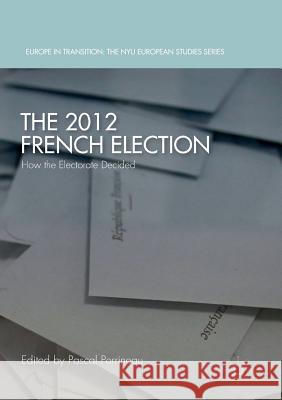The 2012 French Election: How the Electorate Decided » książka
topmenu
The 2012 French Election: How the Electorate Decided
ISBN-13: 9781349956869 / Angielski / Miękka / 2018 / 243 str.
Kategorie BISAC:
Wydawca:
Palgrave MacMillan
Seria wydawnicza:
Język:
Angielski
ISBN-13:
9781349956869
Rok wydania:
2018
Wydanie:
Softcover Repri
Ilość stron:
243
Waga:
0.32 kg
Wymiary:
21.01 x 14.81 x 1.4
Oprawa:
Miękka
Wolumenów:
01
Dodatkowe informacje:
Wydanie ilustrowane











